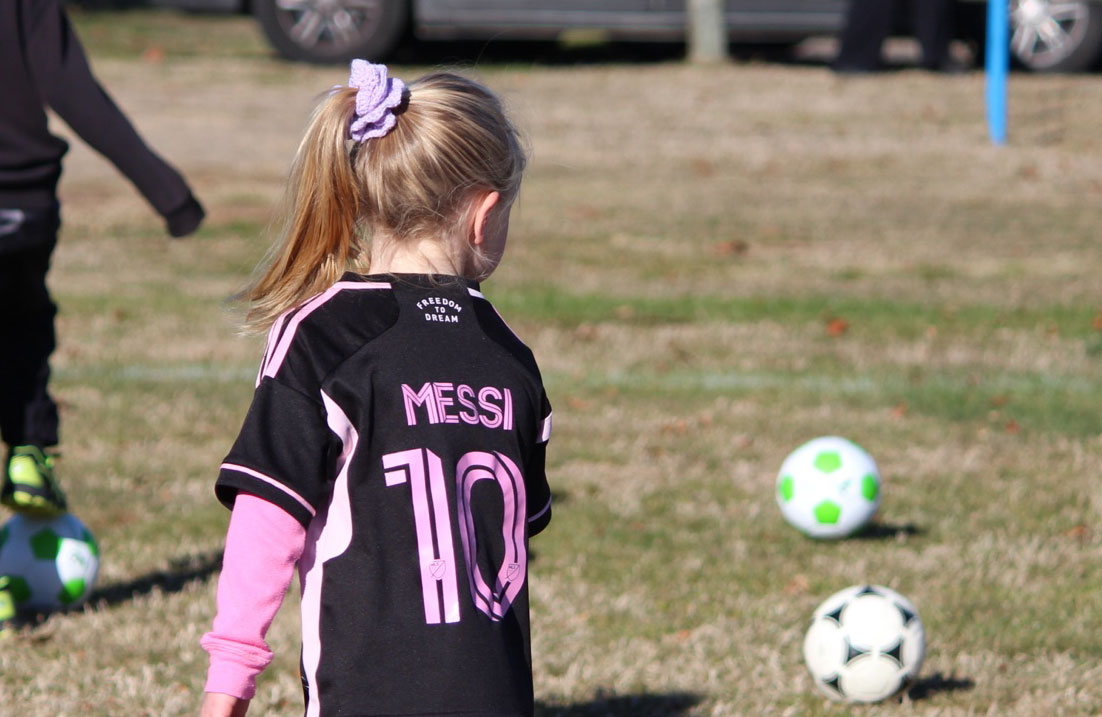
Creating an inclusive football community: Key actions clubs can take

For the whole of March we’ve been celebrating NZ Football’s Girls & Women's month, shining the spotlight on females in football.
Thanks to all the volunteers throughout our clubs and schools who have created and hosted events and who continue to work towards making football ever more accessible for girls and women.
Across our social media channels, we’ve shared stories of some inspirational wāhine in football within the Waikato and Bay of Plenty, as well as shared some knowledge about the female game in our “Did you Know?” series. (Did you know? Football is the second most popular team sport for women and girls in NZ (after netball) but also, Did you know women were banned from playing football in New Zealand for 50 years, from 1921 through to 1971?)
Our work to foster inclusivity in football is not just limited to March, and we encourage clubs to keep taking action throughout the year.
Here are some key actions your club can review to continue making football welcoming for everyone.
These are based on Te Poukapa: The Belonging and Equity Matrix, a framework designed specifically for football clubs. By focusing on its four core aspects, clubs can identify strengths, address challenges, and take meaningful steps toward greater gender equity.
1. Showing: Making inclusion visible
The first step toward inclusivity is ensuring that all club members — especially women and girls — feel seen and represented. This includes reviewing your club’s vision, mission, and values. Do women feel reflected in the club’s purpose and future aspirations?
Practical steps to enhance visibility:
- Display a formal safeguarding policy for children and vulnerable adults.
- Establish clear procedures for reporting bullying or harassment, ensuring a survivor-centric approach.
- Does your board or committee have a Girls & Women’s advocate?
2. Telling: Celebrating your club’s story
A club’s identity is shaped by its history. Does your club’s story reflect the contributions of women and girls over time? Consider the photos on your walls, the milestones you celebrate, and the way history is recorded.
Ways to tell a more inclusive story:
- Highlight the first women’s and girls’ teams in club history.
- Recognise the first female committee member and other trailblazers.
- Foster relationships with local iwi and acknowledge the history of the land you play on.
- Ensure your website and social media shares photos and stories for men and women
3. Doing: Fostering positive culture in daily practices
A club’s culture is about daily interactions and the experiences of players, coaches, and supporters — not just about policies.
To create a positive environment:
- Observe the sideline culture — are spectators and players using respectful language?
- Address sexist, homophobic, or racist remarks — establish a norm where inappropriate behaviour is challenged.
- Introduce club rituals that promote inclusivity, such as a welcome pack for new members, celebrating achievements across all teams, and reinforcing values of respect and support on and off the field.
4. Being: Building a sense of belonging
At its core, inclusivity is about creating a space where everyone feels they can be themselves. Research shows that women and girls often leave sports due to negative experiences rather than voicing their concerns.
To foster belonging:
- Create safe spaces for open conversations and feedback.
- Proactively ask female members about their experiences.
- Strengthen connections between members through team-building activities that encourage whanaungatanga (connection and trust).
Taking Action: Small steps, big impact
By implementing 2-3 initiatives within each of these four areas, clubs can take meaningful strides toward gender equity. These efforts will not only make football more inclusive for women and girls but also cultivate a welcoming and supportive environment for all members.
If you’d like more information on how to apply the Te Poukapa framework at your club, reach out to Alida Shanks for guidance.
Let’s work together to make football a game where everyone belongs!
For more information on how to implement any of the above suggestions, please contact:
Alida Shanks – GM Operations WaiBOP Football
alida.s@waibop.co.nz
+64 21 582 296
Alida completed her PhD at Massey University on women’s football in Aotearoa NZ. Her research used historical analysis to examine key events in women’s football, then explored present-day attitudes to diversity and inclusion, women’s experiences, and feelings of belonging in community sports organisations and clubs. She developed the framework Te Poukapa: The Belonging and Equity Matrix as part of her PhD studies.
Article added: Monday 31 March 2025






